From the lab to the real world: Artificial Intelligence and the decade action
ITU
Session 369
Advances in Artificial Intelligence (AI) and machine learning are transforming all aspects of our lives, economies and societies, in both visible as well as unforeseen ways. Predictive analysis and use of big data is now driving insights and actions on sustainability, health and a range of social uses.
Join this WSIS High-level Dialogue on how to scale AI pilots, projects and studies into meaningful implementation to support the United Nations decade of action. Learn about the next steps towards strengthening projects, improving multistakholder collaboration, including by the UN System, to fully leverage AI solutions, while mitigating the challenges that AI technologies offer - bringing with them the potential to accelerate progress on the Sustainable Development Goals.
The session will include initiatives such as:
The AI for Good Neural Network
The AI for Good Neural Network is an AI-powered community networking and content platform launched in February 2022 aimed at accelerating innovation and collaboration to achieve the Sustainable Development Goals. Through secure networking gateway, AI smart-matching helps you to build connections with innovators and experts, connect you to social impact opportunities and helps you learn more about the application of AI for social good with custom content aligned to your goals. You can also watch live and past AI for Good sessions, visit virtual exhibits and poster boards, and more.
2021 United Nations Activities on Artificial Intelligence (AI) Report
The Report is a joint effort between ITU and 46 UN agencies and bodies, all partners of AI for Good and members of the UN Interagency Working Group on AI. It highlights over 200 cases and AI projects run by the UN system, covering all 17 Sustainable Development Goals (SDGs) ranging from smart agriculture and food systems to transportation, financial services, healthcare and AI solutions to combat COVID-19.
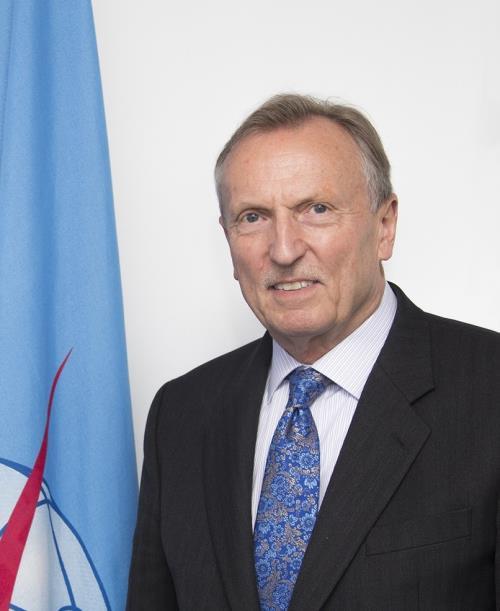
Mr Malcolm Johnson was re-elected ITU Deputy Secretary-General on 1 November 2018 for a second four-year term starting on 1 January 2019.
During his first term as Deputy Secretary-General, he implemented many efficiency measures releasing more resources to key ITU activities and delivered balanced budgets. He led the Management Board for ITU's new headquarters building from initiation to selection of architect and concept design. He has modernized ITU's physical security, improved internal coordination and streamlined and digitized many internal processes substantially reducing paper consumption. He facilitated more inclusive participation in ITU's work through the use of remote participation in meetings.
Prior to serving as Deputy Secretary-General, Mr Johnson served from 2007 to 2014 as Director of ITU's Telecommunication Standardization Bureau where he initiated the “Bridging the Standardization Gap programme" which has resulted in nearly 50 more countries, mainly developing countries, becoming active in ITU's standards work; and the “Conformity and Interoperability programme" which helps developing countries prevent low quality and counterfeit ICT equipment from entering their markets. During his time as Director, he introduced a number of gender parity policies, and the percentage of women professionals increased from less than 20 percent to over 40 percent. He also initiated much of ITU's current work related to environmental issues and accessibility.
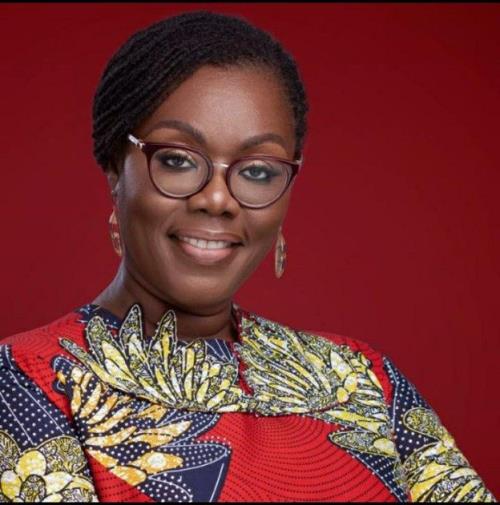
Ursula Owusu-Ekuful (MP) is Ghana’s Minister for Communications and Digitalisation, and serves as the Member of Parliament for Ablekuma West Constituency within the Greater Accra Region in Ghana. Before her appointment as the Minister for Communications in 2017, Ms Owusu-Ekuful was a Managing Consultant with N. U. Consult Legal – Governance and Gender Consultants. She then served as the Chairperson of the Social Development Sector Committee, a committee responsible for the development of policy interventions for women, children, persons with disability, the aged and all social intervention policies and programmes for the NPP 2016 manifesto.
She is also a member of the ITU Broadband Commission in addition to holding the following roles:
a lawyer and a member of the Ghana Bar Association;
an Executive Member of the International Federation of Women Lawyers (FIDA) Ghana; and
a member of the African Women Lawyers Association (AWLA), Ghana.
Minister Owusu-Ekuful holds a Master’s degree in Conflict, Peace and Security from the Kofi Annan International Peacekeeping Training Centre. She also co-chaired the Africa Union/European Union Digital Economy Task Force which was launched in 2018.
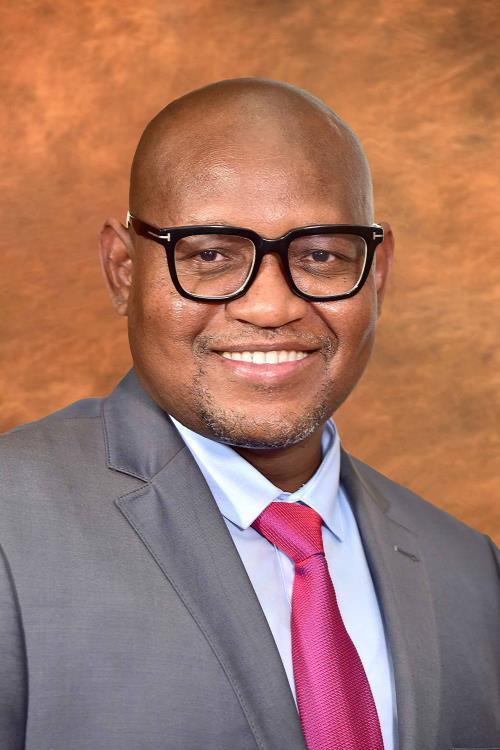
Mohlopi Phillemon “Philly” Mapulane was appointed by the President of the Republic of South Africa, His Excellency President Cyril Ramaphosa, on the 05th of August 2021 as the Deputy Minister of Communications and Digital Technologies.
In June 2012 he was sworn in as the Deputy Speaker of the North West Provincial Legislature. He occupied this position until the general elections in May 2014 when he was elected as a member of the National Assembly in the Parliament of the Republic of South Africa.
He was deployed by the ANC in Parliament in May 2016 to become the Chairperson of the Portfolio Committee on Environmental Affairs in the Fifth Parliament.
After the election of the Sixth Parliament which took place on the 08 May 2019, Cde Philly was deployed as the Chairperson of the Portfolio Committee on Higher Education, Science and Technology. He served in this position for two (2) years until he was appointed as the Deputy Minister of Communications and Digital Technologies by His Excellency President Cyril Ramaphosa on the 05 August 2021.
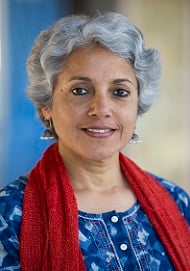
Dr Soumya Swaminathan was appointed WHO’s first Chief Scientist in March 2019. A paediatrician from India and a globally recognized researcher on tuberculosis and HIV, she brings with her 30 years of experience in clinical care and research and has worked throughout her career to translate research into impactful programmes. Dr Swaminathan was Secretary to the Government of India for Health Research and Director General of the Indian Council of Medical Research from 2015 to 2017. In that position, she focused on bringing science and evidence into health policy making, building research capacity in Indian medical schools and forging south-south partnerships in health sciences. From 2009 to 2011, she also served as Coordinator of the UNICEF/UNDP/World Bank/WHO Special Programme for Research and Training in Tropical Diseases in Geneva.
She received her academic training in India, the United Kingdom, and the United States of America, and has published more than 350 peer-reviewed publications and book chapters. She is an elected Foreign Fellow of the US National Academy of Medicine and a Fellow of all three science academies in India. The Science division’s role is to ensure that WHO stays ahead of the curve and leverages advances in science and technology for public health and clinical care, as well as ensuring that the norms, standards and guidelines produced by WHO are scientifically excellent, relevant and timely. Her vision is to ensure that WHO is at the cutting edge of science and is able to translate new knowledge into meaningful impact on population health worldwide.
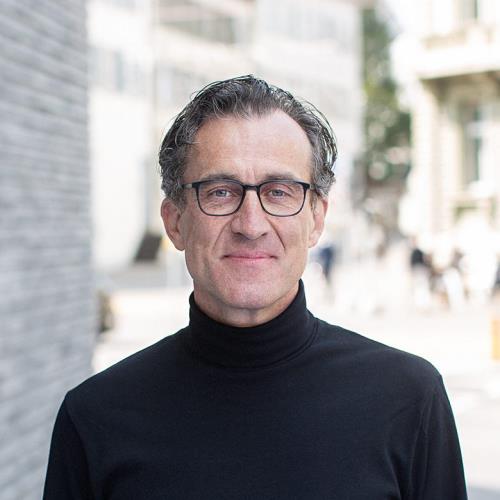
Dr Stefan Germann is the CEO of Fondation Botnar, a Swiss philanthropic foundation working to improve the health and wellbeing of young people living in cities around the world. Advocating for the inclusion of youth voices and the equitable use of Artificial Intelligence and digital technology, the foundation invests in and supports innovative programs and research and brings together actors from across sectors to create dialogue and partnerships.
Stefan has spent over 25 years working in various leadership roles in Africa and Asia, focusing on health-related development for children, relief and advocacy work. He was previously the Senior Director of World Vision’s International Sustainable Health Partnership, Innovation and Accountability unit based in Malaysia. His work focused on a complex relief and reconstruction program in response to the Asian Tsunami.
He has previously held several board and advisory board memberships. These include for the Partnership for Maternal, Newborn and Child Health (PMNCH), UBS Optimus Foundation, REPSSI in Africa, the Global Health Program at The Graduate Institute in Geneva, where he focused on the role of NGOs in global health diplomacy.
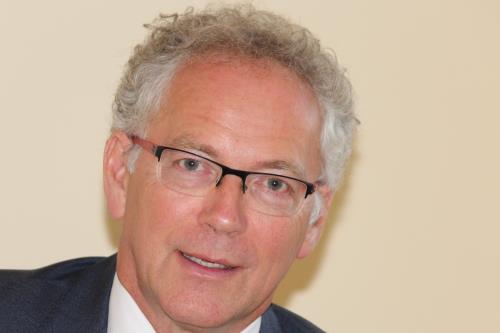
Jean-Yves Art is Senior Director in charge of Strategic Partnerships at Microsoft, based at Geneva, Switzerland. In that capacity, he leads a team of professionals who engage with International Organizations at Geneva, Paris and Washington DC on policy issues that are raised or impacted by digital technologies, including human-centered connectivity, digital governance, cybersecurity, digital safety, and sustainability. Prior to taking this role in 2016, Jean-Yves was based at Brussels where he represented Microsoft in regulatory proceedings across the EMEA region. Jean-Yves also pursued academic activities until he came to Geneva, teaching at both the College of Europe, Bruges and Sciences Po, Paris. He is a regular speaker at conferences on technology governance themes.

-
 C5. Building confidence and security in use of ICTs
C5. Building confidence and security in use of ICTs
-
 Goal 9: Build resilient infrastructure, promote sustainable industrialization and foster innovation
Goal 9: Build resilient infrastructure, promote sustainable industrialization and foster innovation
-
 Goal 17: Revitalize the global partnership for sustainable development
Goal 17: Revitalize the global partnership for sustainable development
https://aiforgood.itu.int